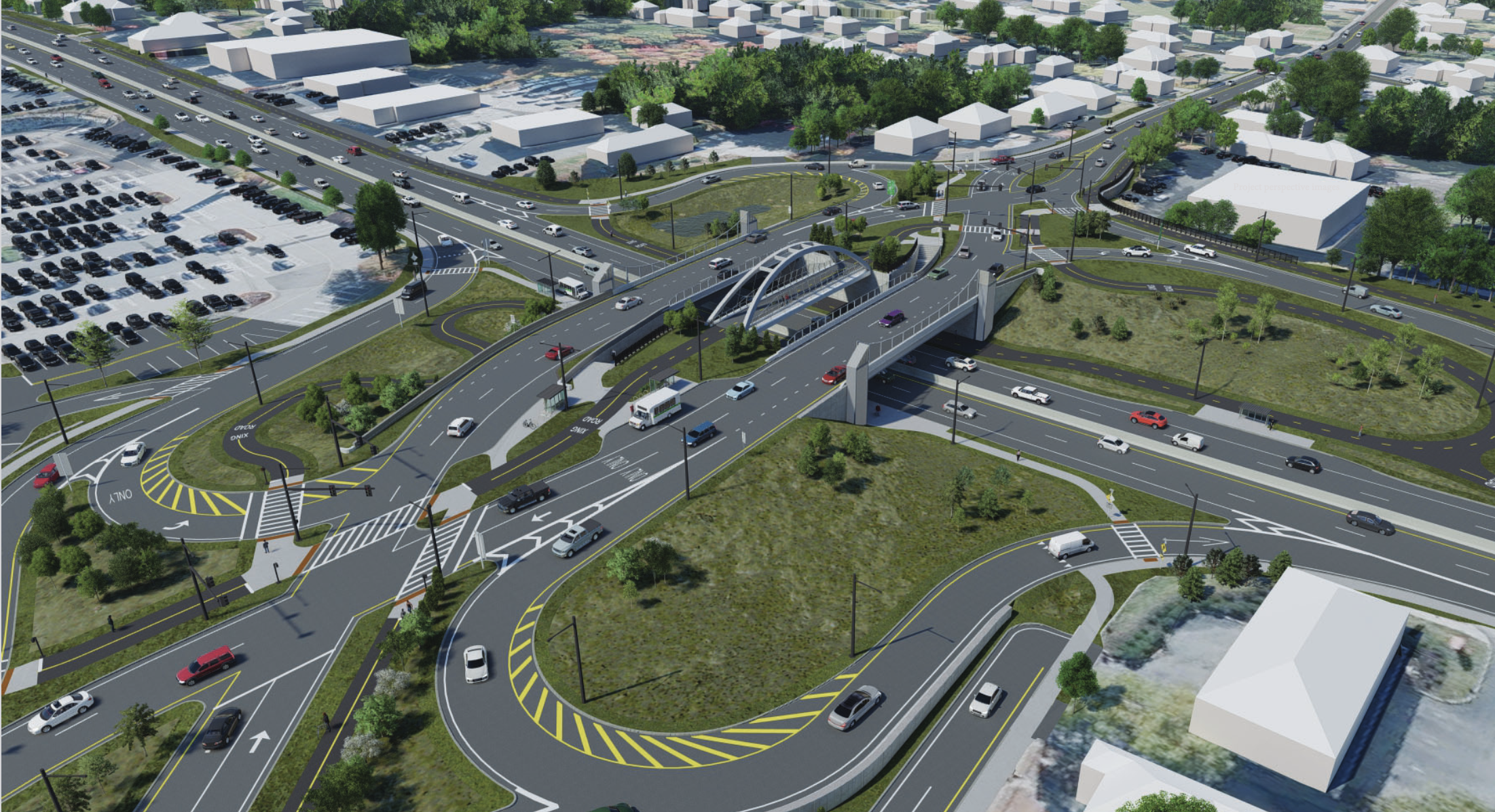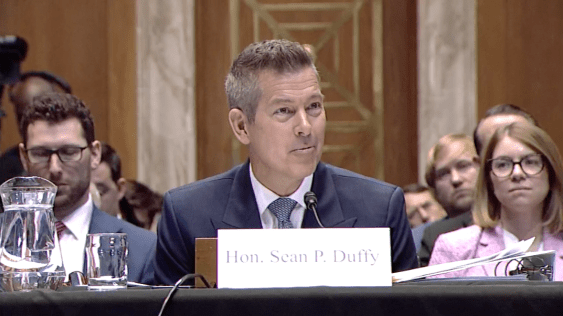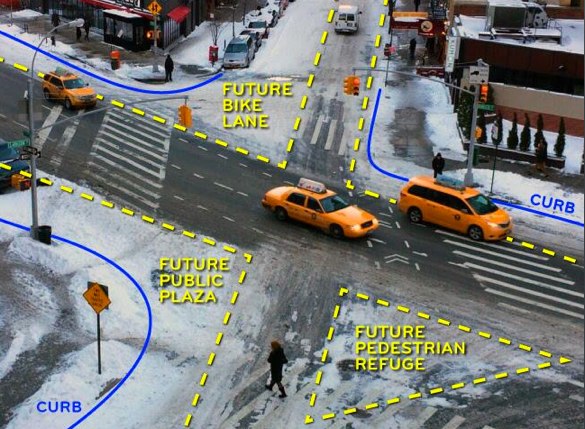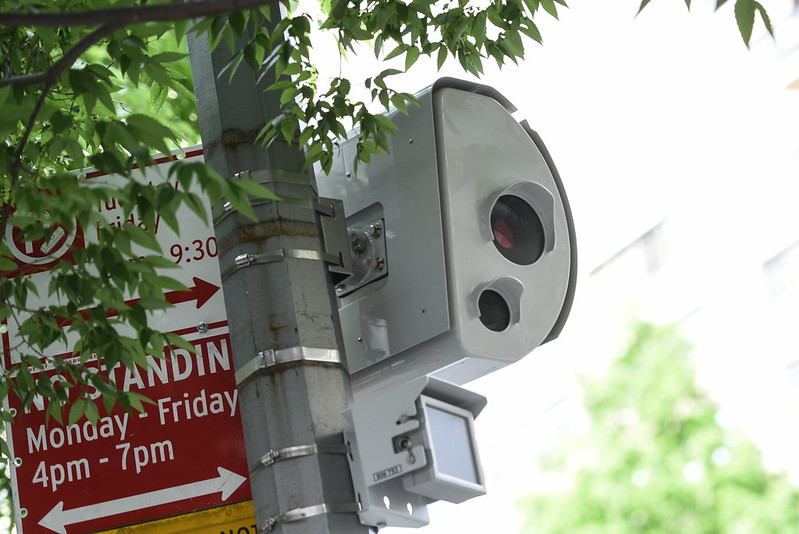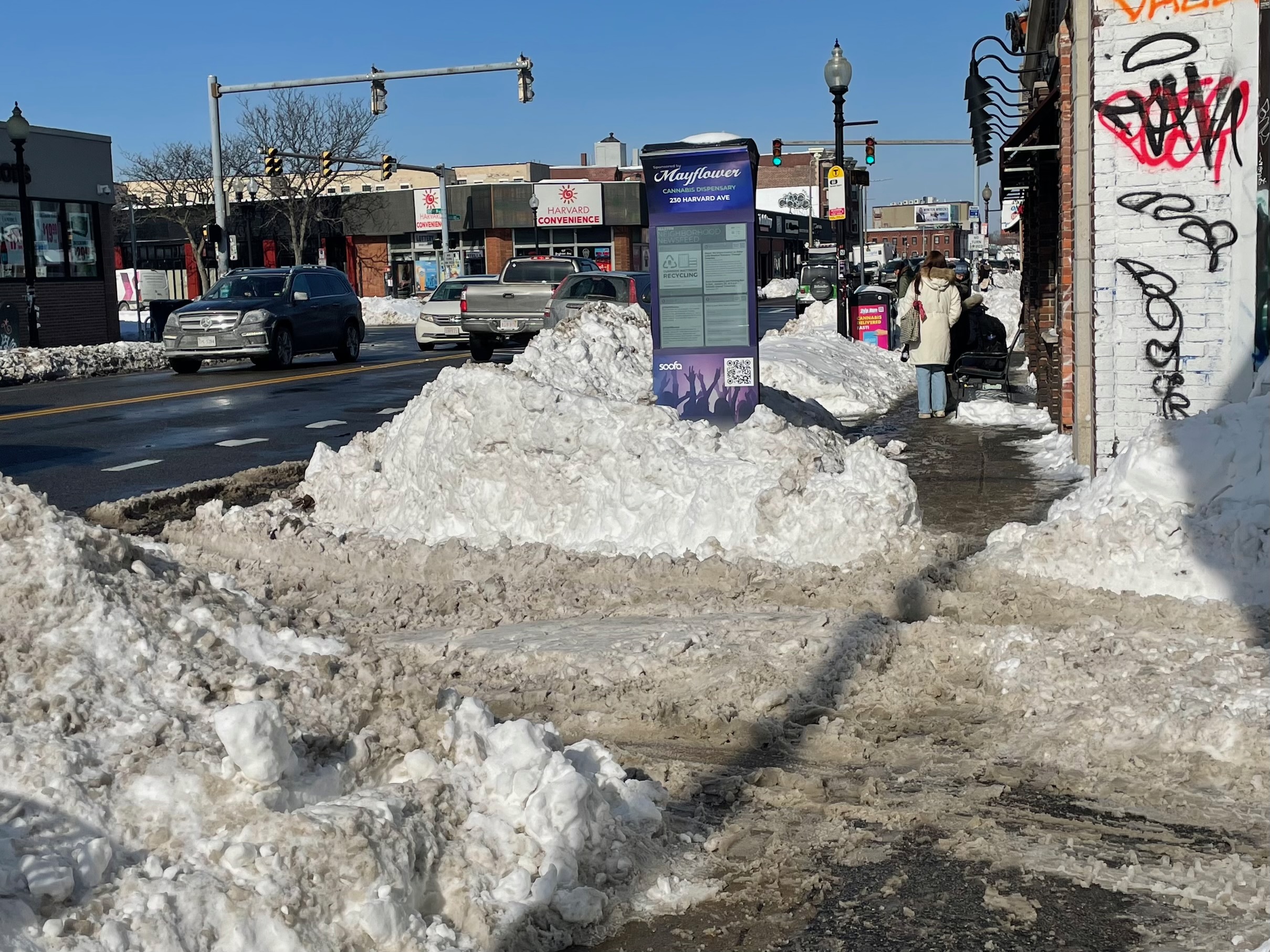On Wednesday, MassDOT's Board of Directors formally approved a design-build contract that would create the first "diverging-diamond" interchange in Massachusetts, at the junction of Route 9 and Main Street in Natick.
However, the project's price tag came in nearly 40 percent higher than MassDOT's estimates – part of a trend in dramatic construction cost inflation that could cause trouble for bigger highway megaprojects in MassDOT's workplan, like the planned Cape Cod Bridge replacements or the Allston I-90 project.
Frank Welch, MassDOT's Deputy Director of Major Projects, told MassDOT board members during its monthly meeting last week that although the agency's engineers had estimated the Natick contract would cost about $71 million this spring, the lowest-price bid that the agency received, from McCourt Construction, ended up being $99 million.
After adding additional costs that are outside the scope of the contract, including additional project engineering work, contingency funds, and traffic police, MassDOT could end up spending $118 million on the new highway interchange (pictured above in a rendering).
Last year's MassDOT capital budget budgeted just $85.4 million for the project.
Welch said that MassDOT engineers and consultants had reviewed McCourt's proposal and found the higher cost "reasonable."
Skyrocketing costs could spell trouble for future MassDOT megaprojects
The MassDOT board of directors approved the $99 million contract unanimously after a brief discussion.
Board member Joseph Beggan remarked that there had been a "robust discussion" of the cost increase at the July 9th Capital Programs Committee meeting, which ultimately did recommend approval of the contract.
"It was our understanding, after the review was conducted internally about this, that this (cost increase) was probably attributable to the maintenance of traffic plans, and some complexities that had not been anticipated," said Beggan. "We recognize it's a very complicated area, there's a lot of commercial activity in that area, and so this is going to be a very sensitive project in terms of keeping everything open and operational while this is going on."
The U.S. Department of Transportation's National Highway Construction Cost Index, which measures changes in prices for 29 road construction project necessities, including labor, asphalt, and steel, increased by over 66 percent between mid-2020 and its most recent measurement at the end of 2023.
A May 2024 analysis by S&P Global, a credit ratings agency, warns that "public sector project sponsors will continue to see historically high bids from contractors (and) the need for larger contingencies in new contracts along with wider cost escalation ranges for materials."
Beggan added that his colleagues should be mindful of those increasing costs for other complex projects where the agency would like to keep traffic flowing through constrained construction sites.
"It's going to important as you look at other projects coming down the road," said Beggan.
Though Beggan didn't name it specifically, MassDOT's Allston Multimodal Project has a considerably more complex construction plan.
In that project, MassDOT hopes to demolish and rebuild the 8-lane Massachusetts Turnpike, the four-lane Soldiers Field Road, two Worcester Line commuter rail tracks, a major underground sewer line, and the Paul Dudley White riverfront trail, and do it all on a exceptionally tight construction site along the environmentally-sensitive banks of the Charles River while also keeping most of those highway lanes open to traffic.
MassDOT's current cost estimate for the Allston project is $2 billion, but that estimate dates to the spring of 2022.
The USDOT's Highway Construction Cost Index has increased another 16 percent since then – enough to potentially add another $320 million to the project's funding gap.
Design would be state's first 'diverging diamond' interchange
The MassDOT project will replace a high-crash cloverleaf interchange at the junction of Route 9 (locally known as Worcester Street) and Main Street on the north side of Natick.
The new interchange would create the first "diverging diamond" interchange in Massachusetts, along with new bike and pedestrian paths throughout the project area.
In the diverging diamond interchange design, motor vehicle traffic on Main Street would switch over to the left side of the roadway between two new traffic lights on either side of Route 9.
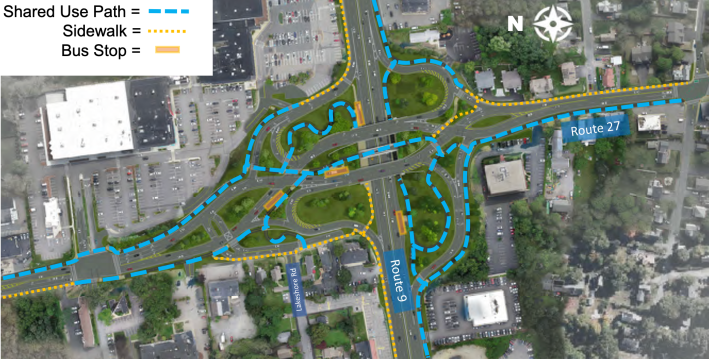
MassDOT's design would build three bridges to carry Main Street traffic over Route 9: two bridges for motor vehicles, and one smaller bridge in the middle to carry bikes and pedestrians.
The project will also build a separated shared-use pathway along the southern shoulder of Route 9, a four-lane divided highway lined with car dealerships, to connect to the existing Cochituate Rail Trail bridge over the highway.
